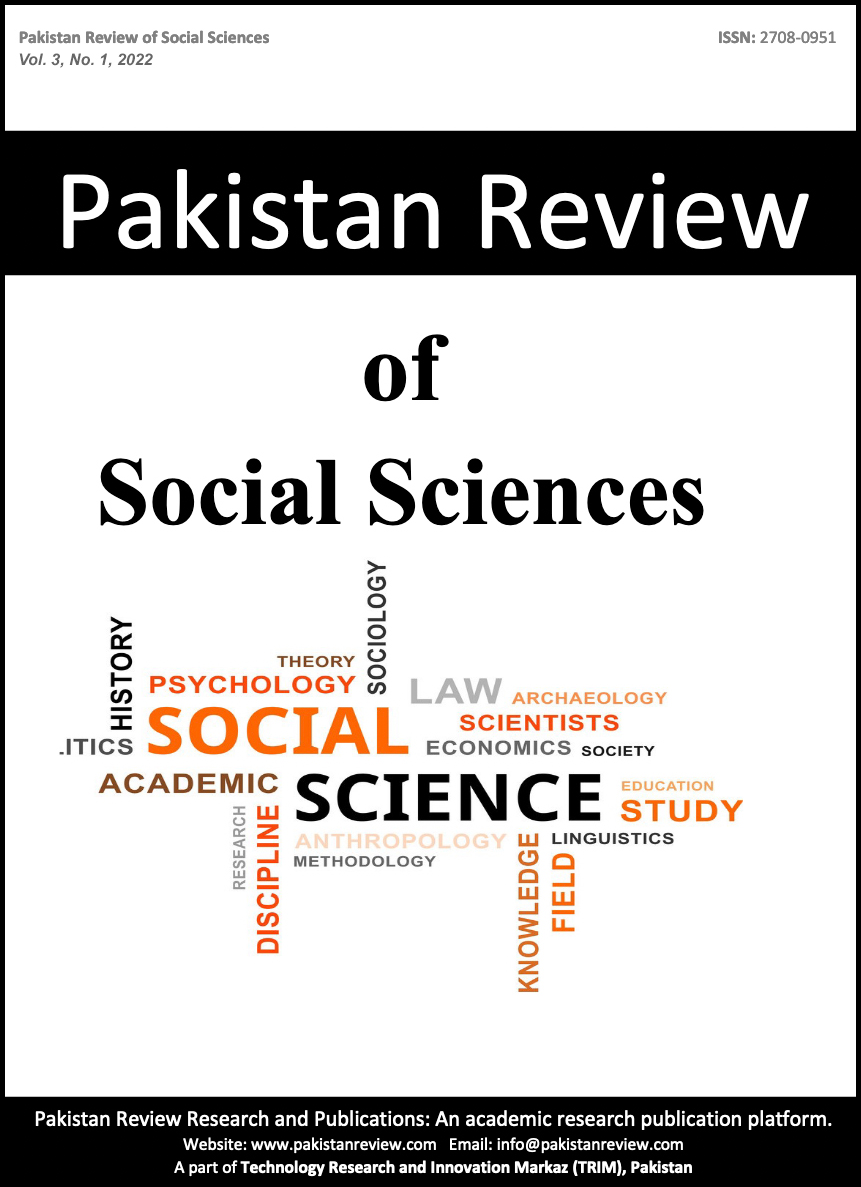Sociological perspective of Suicidal Ideation and Attempts in Adolescents living in District Swat of Pakistan
Keywords:
Sociological perspective, suicidal ideation, adolescents, SwatAbstract
Social Dimensions of suicide specifically through qualitative research approach have hardly been examined by researchers in Pakistan, the particular qualitative study conducted in Swat; A District of (KPK) Pakistan tends to deem the social perspective of the issue. The study aims at scrutinizing the underlying social factors’ role in the production of suicidal ideation in youth which ultimately convinces them to attempt suicide. Ten respondents who attempted suicide but survived are interrogated through a semi-structured interview technique. Interpretative phenomenological analysis (IPA) strategy is utilized for the analysis of collected data. The findings reveal that social determinants like family pressure, family structure, customs and traditions, social exclusion, religious perceptions and social status play an extensive role in suicidal ideation and attempts among adolescents living in Swat. Durkheim theory of suicide (integration- regulation theory) up to a greater extent supported the primary social factors’ role in suicidal ideation among youth living in district Swat. The study concluded that the identified Social features of the study were crucial in the suicide attempts of the selected respondents. The study clarifies that both psychological and sociological perspectives are correspondingly vital which need to be contemplated in the investigation of suicide.Downloads
Published
Issue
Section
License
Submission declaration
Authors retain the copyright to their work and grant the Pakistan Review of Social Sciences (PRSS) the right of first publication under a Creative Commons Attribution 4.0 International (CC BY 4.0) license. This license allows others to share, adapt, and reuse the work for any purpose, including commercial use, as long as appropriate credit is given to the original authors and the journal.
By submitting a manuscript, authors confirm that the work has not been published previously (except as an abstract, lecture, or academic thesis), is not under review elsewhere, and has been approved by all authors and relevant authorities. Once accepted, the article will be openly accessible under the CC BY 4.0 license, ensuring wide dissemination and reuse with proper attribution.






